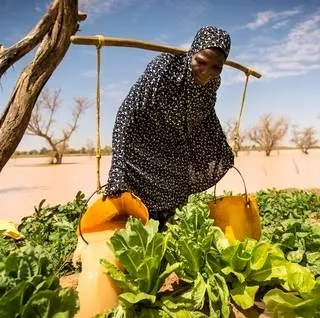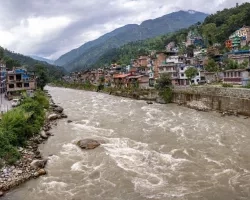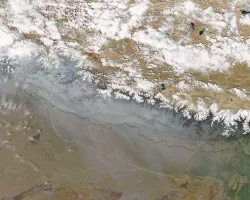The increased intensity of extreme weather events like hurricanes, wildfires and droughts threatens the world's food supply, drives people from their homes, separates families and jeopardizes livelihoods. On May 7 at 8:30 p.m. Eastern Time (5:30 p.m. Pacific Time), NASA and Mercy Corps will host Adapting to a Changing World: NASA + Mercy Corps to discuss how Earth observations can help inform humanitarian efforts around these issues. This interactive “virtual science pub” with the Oregon Museum of Science and Industry will discuss the ways NASA and Mercy Corps are working together to help communities and small-scale farmers adapt to climate variability and a changing environment.
Mercy Corps is a global team of humanitarians whose mission is to alleviate suffering, poverty, and oppression by helping people build secure and just communities.
NASA uses the vantage point of space to increase our understanding of our home planet, improve lives and safeguard our future.
Together, they’re natural partners to advance their shared goals of improving human lives – and are answering questions on their work in a virtual format. Under a three-year Space Act Agreement, this partnership combines NASA’s Earth observation capabilities with Mercy Corps’ local insights and development expertise in more than 40 countries.
Shanna McClain is the manager of Global Partnerships for NASA’s Earth Sciences Division, and an advisor for Risk Reduction and Resilience for the Applied Sciences program. McClain will be co-presenting with Eliot Levine, the director of Mercy Corps Environment Technical Support Unit.
Join this event to learn how NASA’s data, research and resources combine with Mercy Corps’ portfolio of successful humanitarian work to help communities around the world build resilience and better withstand stresses like population growth, conflict, resource scarcity and climate change.
How to watch the event: Visit https://www.facebook.com/omsi.museum/live/ to watch the live streamed event – you do not need a Facebook account to watch. A recording of the event will also automatically post to the Oregon Museum of Science and Industry’s Facebook page after the stream has concluded.




